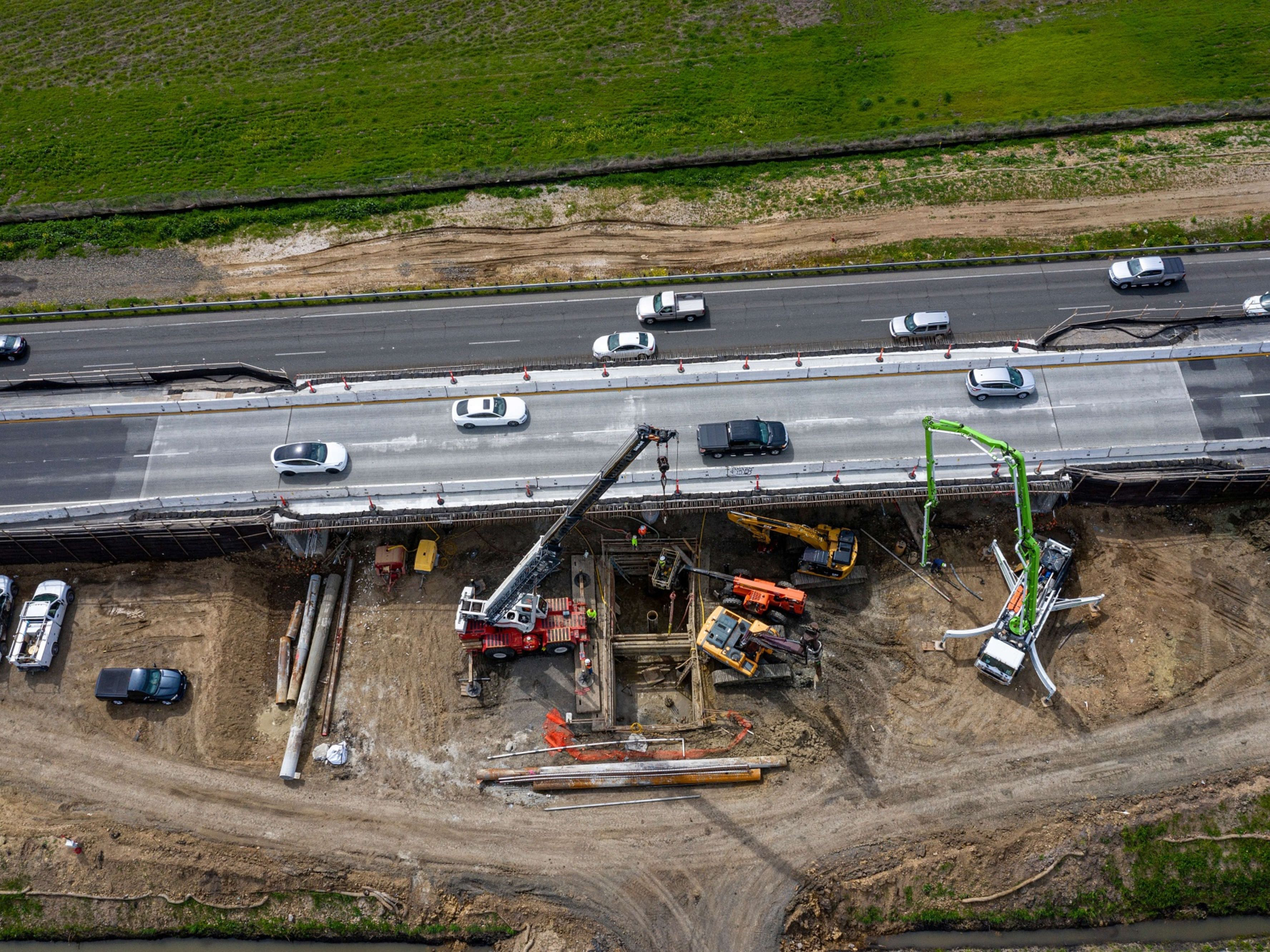
Visit Our Sponsors |
|
|
|
|
|
|
|
|
|
|
|
|
|
|
|
|
|
|
|
|
|
|
|
|
|
|
|
|
|
|
|
|
|
|
|
|
|
|

The broad $550 billion infrastructure package cleared its last procedural hurdles in the U.S. Senate Sunday night, setting up a vote on final passage as soon as Monday.
The legislation, which is a cornerstone of President Joe Biden’s economic agenda, was moved forward in three votes that showed it has broad bipartisan support.
But there was no immediate resolution on amendments still on the table, including proposals for new cryptocurrency rules and flexibility for states and localities that choose to use some unspent pandemic relief funds for roads and bridges.
Work on the bill spilled into a second week as at least one Republican senator, Bill Hagerty of Tennessee, has refused to allow the unanimous agreement needed to speed past hours and hours of remaining debate. He’s among several Republicans who oppose the bill because it will be followed by a Democratic effort to push through without Senate GOP backing a more expansive $3.5 trillion measure entailing the rest of Biden’s economic agenda.
“I’m not inclined to expedite this process whatsoever,” Hagerty said on Saturday.
On Sunday, he proposed bringing up a package of amendments for votes, but without a time agreement to bring the bill to a close quickly.
Senator Kyrsten Sinema of Arizona, the top Democrat negotiator on the bipartisan package, objected, drawing a rebuke from Hagerty.
“Democrats’ true intention is to rush this bill through so that they can hurry up and light the fuse on their $3.5 trillion spending spree, a socialist debt bomb, then leave town for vacation,” he said.
The Senate did edge the infrastructure legislation past more procedural hurdles that indicated the bill has held on to bipartisan support. But agreement on a last batch of amendments was elusive.
Amendments
Senators in both parties were still working to resolve a dispute over two dueling amendments to modify a provision dealing with reporting requirements for cryptocurrency transactions and tax collection. The bipartisan group that drew up the legislation was counting on the extra tax revenue to help pay for some of the bill’s costs.
Senate Finance Committee Chairman Ron Wyden, a progressive Democrat, teamed up with conservative Republicans Pat Toomey and Cynthia Lummis in working with the cryptocurrency industry to draft changes to narrow those affected by the reporting requirements. It would exclude entities such as miners, software designers and protocol developers from the groups that need to report data to the Internal Revenue Service.
But Senator Rob Portman, a Republican, and Democrats Sinema and Mark Warner — three key negotiators on the infrastructure legislation — proposed an 11th-hour alternative endorsed by the White House. It would target some software companies and cryptocurrency miners.
“We are still talking,” Wyden said, declining to discuss what issues still are unsettled.
Meanwhile, Texas Republican Senator John Cornyn is pressing for the Senate to vote on his amendment that would allow state and local governments to use as much as 30% of their unspent COVID-19 relief funds on infrastructure projects. Cornyn said his proposal, sponsored with Democratic Senator Alex Padilla, could free up between $80 billion and $100 billion for projects.
He pleaded with other senators on Saturday to allow consent needed to vote on the proposal considered “non-germane” under Senate rules.
“This money is readily available and does not add to the deficit or debt, but merely provides them with flexibility,” Cornyn said.
Crawling Pace
Hagerty’s objection to speeding up debate underscored how a single senator can use the chamber’s arcane rules to force the Senate to move at a crawl.
Several senators said they expected they could get a vote on the legislation by Monday night. But a lack of agreement to move things ahead risks pushing final passage into early Tuesday. After that, Senate Democrats will begin a days-long debate over the fiscal blueprint underpinning the $3.5 trillion economic plan before lawmakers leave for an August recess.
The infrastructure bill includes $110 billion in new spending for roads and bridges, $73 billion for electric grid upgrades, $66 billion for rail and Amtrak, and $65 billion for broadband expansion. It also provides $55 billion for clean drinking water and $39 billion for transit.
“The state of play looks good” and the package is “on the cusp” of moving through the Senate, Transportation Secretary Pete Buttigieg said on “Fox News Sunday.” The infrastructure spending will generate “enormous economic growth,” he said.
The legislation still faces challenges in the House, where Democrats can afford only three defectors if Republicans vote in unison against the bill.
House Speaker Nancy Pelosi reaffirmed Friday that the House won’t take up the infrastructure legislation until the Senate also passes the more sweeping economic package, a linkage demanded by progressives in the chamber. That is a central demand of progressive Democrats in the House, but some moderates are urging Pelosi to not delay the infrastructure bill.
RELATED CONTENT
RELATED VIDEOS
Timely, incisive articles delivered directly to your inbox.

